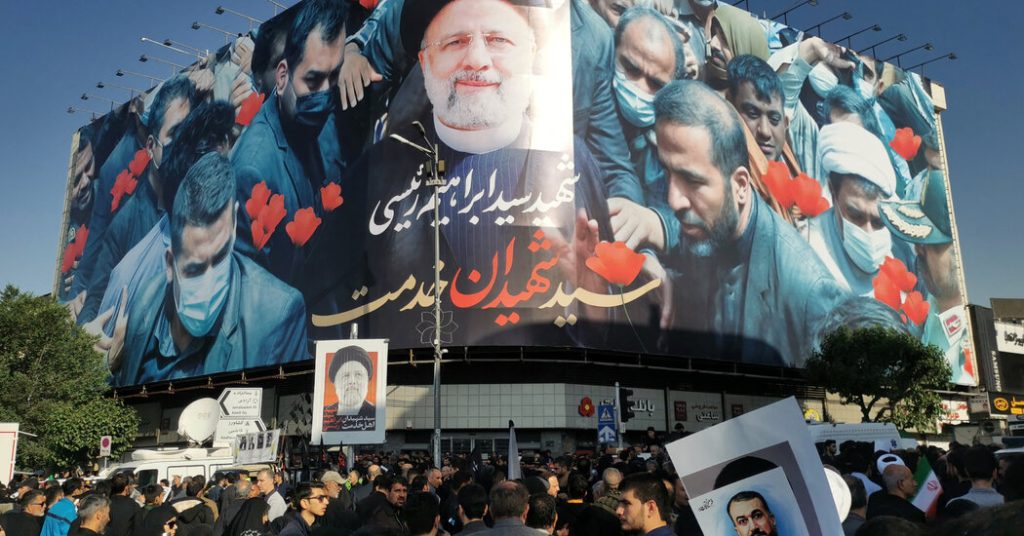Iran’s president, Ebrahim Raisi, was killed in a helicopter crash in northwestern Iran along with Foreign Minister Hossein Amir Abdollahian and five others. Thousands of Iranians gathered to mourn their deaths, with funeral processions beginning in Tabriz and continuing in Qom and Tehran. Ayatollah Ali Khamenei, Iran’s supreme leader, performed funeral prayers for the deceased president, who had been considered a potential candidate to succeed him. A funeral procession and ceremony were held in Tehran with the presence of foreign dignitaries, including Ismail Haniyeh from Hamas, despite his alleged involvement in war crimes. While government supporters attended the services, many ordinary Iranians who oppose the government showed apathy or even cheered Raisi’s death due to his record of human rights violations.
As investigations into the cause of the helicopter crash continue, details have emerged about its final moments. Iranian state media reported that the crash was due to a “technical failure,” and weather conditions were normal when the helicopter took off. The pilot of the helicopter instructed the convoy of aircraft to increase altitude to avoid a cloud, but the helicopter disappeared about 45 minutes into the flight. Despite attempts to make radio contact, the helicopter crashed, and one of the passengers on board, a local prayer leader from Tabriz, was able to communicate that the helicopter had crashed before succumbing to his injuries.
The funeral for President Raisi and the other victims drew huge crowds in Tehran, with tight security measures in place and public transportation made free to enable people to attend. Ayatollah Khamenei led the funeral prayers for Raisi, laying down his cane as a sign of respect. The state news media broadcasted images of the mourners gathered outside the University of Tehran, where the coffins were housed. Raisi’s death raises questions about succession plans in Iran, as he was seen as a potential successor to the ailing Supreme Leader. Foreign dignitaries, including Turkish officials, attended the ceremony, while the Kremlin decided not to send a delegation.
Despite the official mourning and ceremonies for President Raisi, there were mixed reactions among Iranians, reflecting the deep divisions and discontent within the country. While government supporters mourned Raisi’s death, many ordinary Iranians, who opposed his regime, showed indifference or even celebrated his demise. The presence of Ismail Haniyeh from Hamas at the funeral raised eyebrows, given his alleged involvement in war crimes, highlighting Iran’s support for militant groups in the Middle East. The international community will be watching closely as Iran navigates this period of mourning and uncertainty amidst internal and external challenges.


